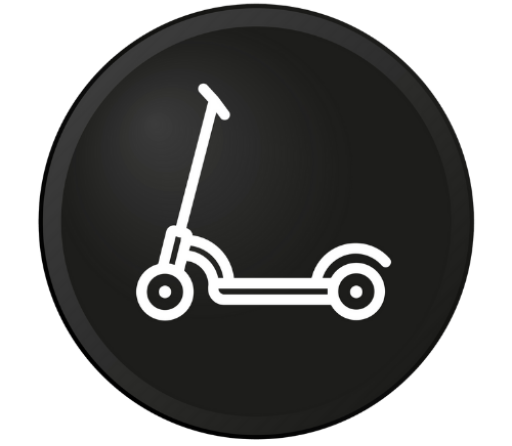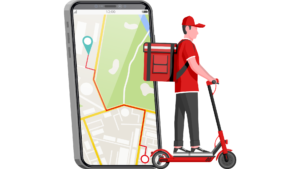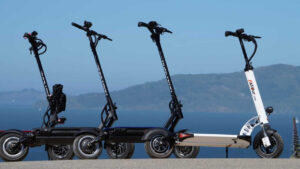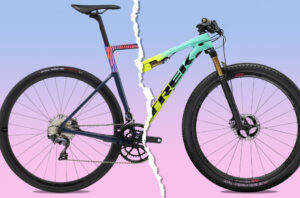Choosing the right bicycle can significantly enhance your riding experience, whether you’re commuting, exercising, or just enjoying a leisurely ride.
Two popular but distinct options are folding bicycles and fixed-gear (fixie) bicycles. This article will delve into the differences, advantages, and disadvantages of each to help you make an informed decision.
1. Design and Structure
Folding Bicycles:
- Compact and Portable: The main feature of a folding bicycle is its ability to fold into a compact size. This makes it incredibly convenient for storage and transportation, whether you’re taking it on public transport, fitting it in your car trunk, or storing it in a small apartment.
- Varied Folding Mechanisms: Folding bikes come with different folding mechanisms, such as mid-fold, vertical fold, and triangle hinge, catering to different needs and preferences.
- Versatility: Designed for a range of uses, from urban commuting to leisurely weekend rides.
Fixed-Gear Bicycles:
- Simplistic Design: Fixed-gear bicycles have a minimalist design, featuring a single gear that is directly fixed to the wheel. This means there are no freewheeling capabilities – if the bike is moving, the pedals are moving.
- Lightweight Frame: Often built with lightweight materials to enhance speed and agility.
- Streamlined Aesthetics: Known for their sleek and straightforward appearance, fixed-gear bikes are popular among cycling purists and urban riders.
2. Use Cases
Folding Bicycles:
- Urban Commuting: Ideal for city dwellers who need a convenient and portable mode of transportation. They can be easily taken on buses, trains, and stored under desks at work.
- Travel: Perfect for travelers who want to explore new destinations on a bike without the hassle of transporting a full-sized bicycle.
- Recreational Riding: Great for casual rides in the park or around the neighborhood.
Fixed-Gear Bicycles:
- Urban Riding: Favored by urban cyclists for their simplicity and ease of maintenance, making them excellent for city streets.
- Training: Used by cyclists for training, as riding a fixed-gear bike can improve pedaling efficiency and strength.
- Track Cycling: Essential for track cycling in velodromes, where they originated.
3. Performance
Folding Bicycles:
- Speed and Comfort: Not typically designed for high-speed performance but rather for comfort and convenience. Some models offer multi-speed options for varied terrain.
- Ride Quality: Smaller wheels and compact frames might offer a slightly different ride experience, but high-quality models can provide a smooth ride.
Fixed-Gear Bicycles:
- Direct Power Transfer: The fixed-gear mechanism allows for direct power transfer, making these bikes highly responsive and efficient.
- Control and Maneuverability: Excellent control and maneuverability, especially in urban environments.
- Speed: Can be very fast, especially on flat terrain, due to their lightweight design and lack of gears.
4. Maintenance and Durability
Folding Bicycles:
- Regular Maintenance: Require regular maintenance, particularly of the folding joints and mechanisms to ensure longevity and safety.
- Durability: Generally durable, but the folding mechanisms can be points of wear and potential failure if not properly maintained.
Fixed-Gear Bicycles:
- Low Maintenance: With fewer components than geared bikes, they are easier to maintain. The absence of derailleurs and multiple gears simplifies upkeep.
- High Durability: Robust and durable, suitable for various conditions and intensive use.
5. Cost
Folding Bicycles:
- Price Range: Prices vary widely based on brand, quality, and features. Entry-level models are affordable, while high-end models with advanced features can be pricey.
- Value for Money: Offer great value for those who need a portable, versatile bike for commuting and travel.
Fixed-Gear Bicycles:
- Affordable Options: Generally more affordable than many other types of bikes, with numerous budget-friendly models available.
- Investment in Quality: Higher-end models, often custom-built or made from premium materials, can be more expensive but offer superior performance and longevity.
Conclusion
The choice between a folding bicycle and a fixed-gear bicycle ultimately depends on your specific needs and preferences.
If you need a bike for commuting, travel, or storage in tight spaces, a folding bicycle offers unmatched convenience and versatility.
On the other hand, if you value simplicity, efficiency, and a unique riding experience, a fixed-gear bicycle might be the better choice.
Consider your primary use case, budget, and personal preferences to make the best decision for your cycling lifestyle.



